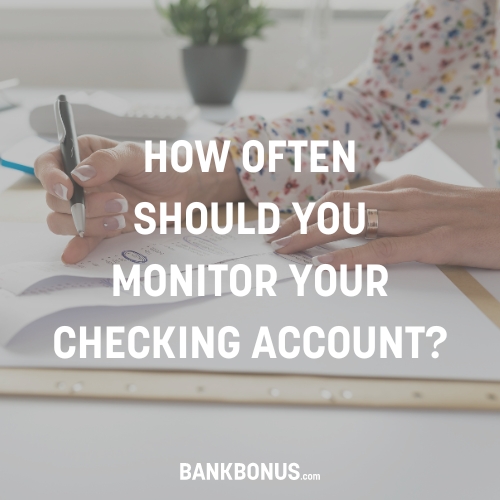According to a 2022 survey by the American Payroll Association, over 93% of Americans receive their paycheck via direct deposit; less than 4% opted for paper checks.
Receiving your pay via direct deposit saves you a trip to the bank and provides quick access to funds as soon as possible.
However, you may wonder what time does direct deposit hit your account, especially if you need funds fast.
What Time Does Direct Deposit Hit?
Direct deposit is a convenient method of receiving payments directly into your bank account without needing physical checks or cash. It offers a faster and more secure way to access your funds.
If you’re expecting a direct deposit, whether it’s from your employer or a government agency, you may be wondering when the funds will be available in your account.
In this section, we’ll explore direct deposit times for payroll and government payments.
Payroll Direct Deposits
For many employees, direct deposit is the preferred payment method. It eliminates the need to deposit a check physically and provides quick access to funds. The timing of when direct deposit hits can vary depending on your employer’s payroll software and the bank or financial institution used for the transaction.
Typically, employers initiate direct deposits a few days before the actual payday. The exact timing can differ from one company to another. Some employers may process direct deposits a day or two before payday, while others may do it a week in advance. This early initiation allows sufficient time for the funds to be processed and transferred to the employee’s bank account.
Once the direct deposit has been initiated, the time it takes for the funds to be available in your account will depend on your bank’s processing times.
Most banks will process direct deposits and make the funds available on the same day they are received. However, some financial institutions may not process direct deposits until the next business day, especially if the deposit is received late in the day, over the weekend, or after the processing cutoff.
It’s important to check with your employer and bank to confirm the specific timeline for direct deposits to clearly understand when your funds will be available in your account.
Government Direct Deposits
In addition to payroll direct deposits, many individuals receive government payments through direct deposit, including Social Security benefits, tax refunds, unemployment benefits, and other government assistance programs.
The timing of government direct deposits is generally more standardized than payroll deposits.
For example, Social Security benefits are typically paid on the same day each month. Tax refunds, on the other hand, are subject to the processing times of the Internal Revenue Service (IRS) and can vary depending on factors such as the accuracy of your return and the method of filing.
It’s best to contact the respective government agency or visit their official website to get precise information about the timing of your government direct deposit. They will provide specific details regarding the processing and release dates for different types of payments.
Factors Affecting Deposit Times
While direct deposits are generally processed promptly, some factors may affect the time the funds appear in your account. These factors include the specific policies and processes of your bank or financial institution and the timing of the deposit request made by your employer.
Some banks may begin processing direct deposits in advance, allowing early access to your funds. Knowing your bank’s policies and any potential delays due to weekends or holidays is important.
Plan your financial obligations accordingly if you expect a direct deposit on a Sunday or a federal holiday. While most direct deposits are processed promptly, having a buffer in your account is always good practice to account for unexpected delays and potential overdraft fees.
You can ensure a smooth and seamless deposit process by being proactive and staying informed about your bank’s policies.
Do Direct Deposits Hit on Sundays?
Direct deposits offer a fast and convenient way to receive your paycheck. However, there may be some confusion about whether direct deposits are processed on Sundays.
Direct deposit payments are typically processed on the same day as your payday. If your payday falls on a Sunday, your direct deposit may not arrive until the next business day because the ACH network relies on the Federal Reserve.
Banks and financial institutions understand the importance of timely payments, so they strive to ensure that direct deposits are made available to their customers as soon as possible.
What Is Direct Deposit?
A direct deposit is simply an electronic funds transfer through the ACH Network. The payer initiates an electronic payment deposited into your bank account rather than issuing a paper check.
Some banks and financial institutions offer an early direct deposit feature so you can access direct deposit funds up to two days before the transaction is fully processed.
Banks that offer early direct deposit have restrictions on the types of direct deposits that qualify.
Learn More:
How Do Direct Deposits Work?
Many businesses use direct deposit to process payroll.
Here’s how direct deposit works:
- After receiving your relevant payroll information, your employer or client can submit your direct deposit request.
- Your employer’s bank sends a direct deposit request to the ACH Network on a predetermined day.
- The ACH Network processes the request and directs the deposit amount to your bank or credit union.
- Your bank receives the funds and deposits them into your checking account.
Now that you understand when direct deposit hits and how it works, you can plan your finances accordingly and enjoy the convenience of receiving your pay electronically.
Benefits of Direct Deposits
Direct deposit is a convenient and efficient method of receiving payment directly into your bank account.
In this section, we will explore the advantages of using direct deposits to receive your income and other payments.
1. Instant and Secure Transactions
Direct deposit transfers your payment electronically, providing instant access to your funds. Gone are the days of waiting for checks to clear, visiting the bank, or keeping track of deposit slips and other documents.
Direct deposits offer a seamless and secure transaction process, ensuring your hard-earned money is safely deposited into your account.
2. Convenience and Time-Saving
Direct deposits eliminate the need to physically go to the bank to deposit your checks, saving you valuable time and effort. No more standing in long lines or rushing to the bank before it closes. Direct deposit automatically credits your payment to your account, allowing you to focus on more important things.
You can also split your direct deposit across multiple accounts to better budget for your financial goals.
3. Reliable and Consistent Cash Flow
Direct deposits provide a reliable and consistent cash flow, as your payment is deposited into your account on a predetermined schedule. Whether it’s your salary, benefits, or other regular payments, direct deposits offer peace of mind, knowing that your income will be deposited automatically and on time.
4. Environmentally Friendly
By opting for direct deposit, you contribute to a greener environment. The paperless nature of direct deposits reduces the need for physical checks, leading to less paper waste and a lower carbon footprint. Embracing this digital payment method benefits you and helps preserve our planet for future generations.
5. Enhanced Security and Reduced Risk
Direct deposits offer enhanced security compared to receiving physical checks. With direct deposit, you minimize the risk of lost or stolen checks, ensuring your funds are safely transferred into your bank account. Additionally, electronic transactions are encrypted, providing an added layer of protection against identity theft and fraud.
6. Access to Funds Anywhere, Anytime
Once your payment is deposited via direct deposit, you can access your funds conveniently anywhere through online banking or a mobile app. Whether you need to make online purchases, pay bills, or withdraw cash, having your money readily available in your bank account gives you the freedom and flexibility to manage your finances on your own terms.
Direct deposit offers many advantages, from instant and secure transactions to reliable cash flow and environmental benefits. By embracing this payment method, you can streamline your financial management and enjoy the convenience of having your funds readily available.
Can You Direct Deposit without a Bank Account?
Direct deposit is a popular and convenient payment method, such as paychecks or government benefits. But what if you want direct deposit but don’t have a bank account?
If you don’t have a traditional bank account, you can still take advantage of direct deposit using a prepaid debit card. These cards function like regular debit cards and can be used to make purchases or withdraw cash from ATMs.
Many prepaid debit card providers offer the option to set up direct deposit, allowing you to receive your payments directly onto the card.
Alternative Financial Services
In addition to prepaid debit cards, other alternative banking services provide options for direct deposit without a bank account. Some examples include:
- Mobile Banking Apps: Certain mobile apps and online banking software can set up direct deposit without requiring a traditional bank account. These apps typically provide the option to open a mobile banking account and access funds through the app.
- Check Cashing Stores: Some check cashing stores offer services that allow you to receive direct deposit payments without a bank account. They may provide you with a prepaid card or offer cash disbursement for a fee.
- Online Payment Platforms: Online payment platforms, like PayPal, Venmo, Cash App, and Zelle, enable users to receive direct deposit payments without a bank account. Funds can be stored within the platform and used for online transactions or transferred to other users.
How to Set Up Direct Deposit
Direct deposit is a convenient way to receive your paychecks and other income directly into your bank account, eliminating the need to visit a physical bank or cash a paper check. Setting up direct deposit is a simple process that can save you time and effort.
In this section, we will guide you through the steps to set up direct deposit.
Step 1: Contact Your Employer
The first step to set up direct deposit is to contact your employer or human resources department. Inquire about their direct deposit process and ask for the necessary enrollment forms. Most employers offer direct deposit as an option, and they will be able to provide you with the relevant details.
Step 2: Gather the Required Information
Before starting the direct deposit enrollment process, ensure you have the required information readily available.
You’ll typically need to provide your bank account information, a copy of a voided check with your bank account number/routing number, and other personal information to verify your identity.
You can find this information on your checks or by contacting your bank directly. It’s important to ensure that your information is accurate to avoid delays in receiving your funds.
Step 3: Complete the Direct Deposit Form
Once you have the required information, fill out the direct deposit form provided by your employer. The form typically asks for your personal information, including your name, address, and social security number.
Take your time to review the form and double-check the information before submitting it.
Step 4: Submit the Form
After completing the direct deposit form, submit it to your employer or HR department per their instructions. Some companies may require you to submit a physical copy of the form, while others may have an online portal or system where you can submit the information electronically. Follow the prescribed method to ensure smooth processing of your direct deposit enrollment.
Step 5: Verify and Confirm
Verifying and confirming successful enrollment is important once you’ve submitted the direct deposit form. Keep an eye on your bank account for the first direct deposit. If it goes through, it will confirm that you’ve set up your direct deposit correctly. If you don’t receive the deposit within the expected timeframe, reach out to your employer or HR department to address any potential issues.
Setting up direct deposit is a straightforward process that can bring numerous benefits, such as faster access to funds and increased convenience. By following these steps and providing accurate information, you’ll be able to enjoy the ease and efficiency of direct deposit.
Bottom Line
The time your direct deposit hits your account depends on various factors, including who sends the money and your bank. For payroll direct deposits, your employer likely follows a schedule to ensure that the funds are deposited into your bank account at a set time on payday.
However, the actual time frame may vary depending on your bank’s processing time. Government direct deposits, such as Social Security benefits, have scheduled payment dates and typically arrive on the same day each month.
It’s important to note that if your direct deposit falls on a holiday or a weekend, it may cause a delay in the funds showing up in your account. Additionally, some banks offer the option of early direct deposit, where you can access your funds up to two days before the official processing date. However, this feature may come with certain restrictions.
Direct deposit is a convenient and efficient way to receive your paycheck or other payments. Understanding the timing of your direct deposit can help you plan your finances accordingly and ensure quick access to your funds.





Comments are closed.
Comments are closed here.